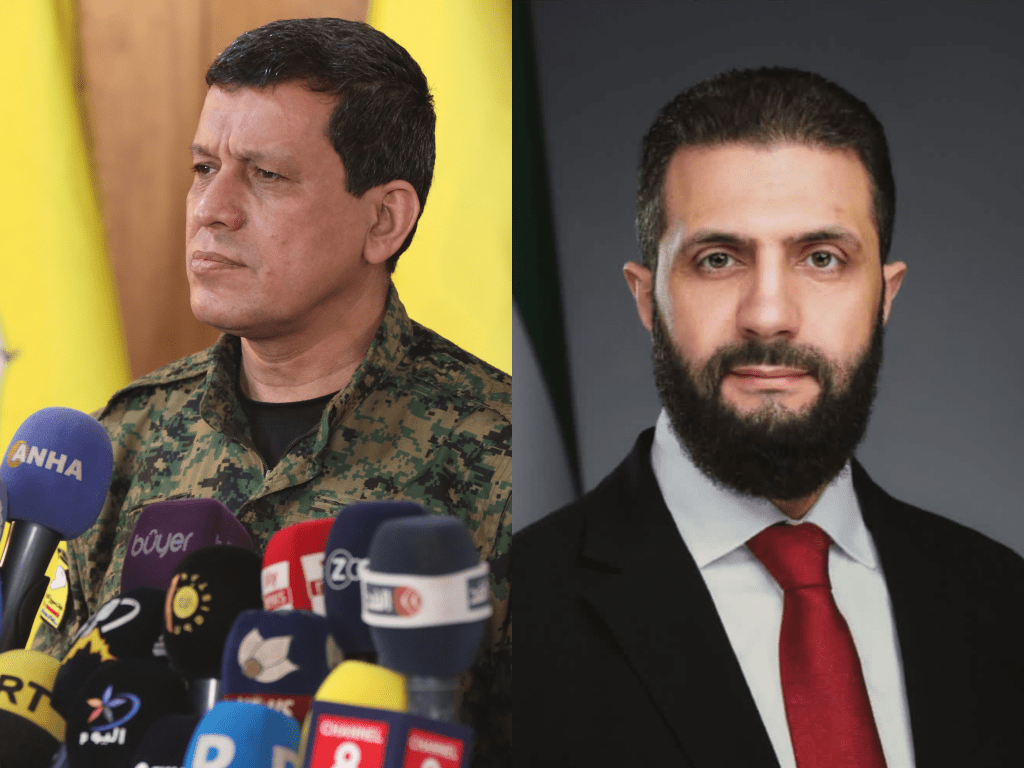Syria withdraws from Kurdish talks after calls for federal system

Syria’s transitional government will not participate in Paris talks, which intend to mediate differences of a Kurdish-led force after the force led a meeting with religious and ethnic minorities that supported a decentralised federal system, according to The National on August 9th.
“The government affirms that this conference has dealt a blow to continuing negotiation efforts,” said a Syrian government official, according to Sana news agency. The official added: “Accordingly, it will not participate in any meetings scheduled for Paris and will not sit at the negotiating table with any party seeking to revive the era of the former regime under any pretext or cover.”
The official also said his government “calls on international mediators to move all negotiations to Damascus, as it is the legitimate and national address for dialogue among Syrians.”
Syria’s new provisional government was formed by rebel groups, which ousted ex-president Bashar al-Assad in December after over thirteen years of civil war. The new government seeks to centralise its control over the state and merge all armed groups into its state security forces.
However, the US-backed Kurdish-led Syrian Democratic Forces, or SDF, have continued to refuse to comply with these efforts, despite agreeing to do so under a deal signed in March.
Syria, France and the US announced in July 2025 that they had planned on organising talks “as soon as possible” to integrate autonomous Kurdish forces into the new government led by President Ahmed al-Sharaa.
Syria has signed billion-dollar investment deals with Saudi Arabia, which intend to support post-war recovery. Centralisation could lead to a stable Syria, which could encourage more investment to rebuild its crippled economy and infrastructure after more than a decade of war.
Violence against minority groups, such as the Alawites and Druze, by state and affiliated forces in the Sunni-majority country has seen more than 176,000 people displaced in southern Syria. These incidents have sparked concerns over whether the government, dominated by a rebel group formerly linked with Al-Qaeda, will uphold its commitment to ensure equal treatment for all citizens.
On August 8th, hundreds of representatives of various ethnic and religious minorities gathered in the SDF-controlled city of Hassakeh. They urged the creation of a decentralised state and a new constitution that enshrines pluralistic religious, cultural and ethnic rights.
Representatives denounced the violence conducted by pro-government groups against Syrian minorities, claiming that these acts constitute crimes against humanity.
Syria’s government intends to carry out indirect legislative elections in mid-September, once it has drafted a new constitution.
The spiritual leader of Syria’s Alawite minority, Ghazal Ghazal, urged for a more decentralised or federal system that guarantees religious and cultural rights. Another demand for a federal-run Syria was raised by SDF commander Mazloum Abdi, which was turned down by the government.
The official also said, according to Sana, that religious or ethnic groups have the freedom to express their political desires, provided “they do not impose their vision on the form of the Syrian state”.
The official added that the August 8th inter-ethnic meeting “does not represent a comprehensive national framework but rather an alliance that includes parties harmed by the victory of the Syrian people and the fall of the defunct regime along with some entities attempting to monopolise the representation of Syria’s components by the force of the status quo.”
The National, Sana, Maghrebi.org
Want to chase the pulse of North Africa?
Subscribe to receive our FREE weekly PDF magazine














